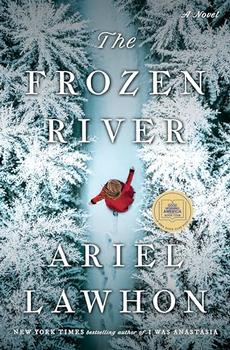Summary | Excerpt | Reading Guide | Reviews | Beyond the book | Read-Alikes | Genres & Themes | Author Bio

Critics' Opinion:
Readers' Opinion:
First Published:
Jan 2012, 336 pages
Paperback:
Aug 2012, 336 pages
 Book Reviewed by:
Book Reviewed by:
Jennifer G Wilder
Buy This Book
Barry Unsworth has prepared some interesting specimens of eighteenth-century humanity in The Quality of Mercy. He takes characters from wildly different social strata - a slave-dealing capitalist, an abolitionist lawyer, a light-starved coal miner, a fiddler escaped from prison - and puts them under a microscope to expose the subtle workings of their minds and morals. Under such close scrutiny, nothing is black-and-white.
Erasmus Kemp, who has inherited the family slave and sugar business, is now scheming over the money to be made in coal. Kemp has been involved in gruesome dealings, many of which make up the action in Unsworth's 1992 Booker Prize-winning novel, Sacred Hunger. There is a nagging sense in The Quality of Mercy that all the strongest action and blackest deeds have taken place in the past - instead of adventure on the high seas, we have arguments in courts of law.
It isn't necessary to have read Sacred Hunger to follow the plot (I had not), but it is useful to know from what events the characters are reeling. The primal horror at the heart of the story concerns the dozens of African slaves who were cast overboard en route to Jamaica because they were sick, and Kemp's company hoped to collect insurance money on them as "damaged cargo." The ship's doctor (Kemp's hated cousin) rebelled against this barbaric act, there was a mutiny, and some of the surviving crew made it to Florida with the remaining Africans, where they lived in a shared society in what sounds like an egalitarian tropical paradise. The dastardly Kemp then comes all the way across the ocean to kick everyone out of the garden. The Africans are sold and the crew members are hauled back to London, where they will be tried for mutiny and where their testimony will help Kemp collect the insurance money for his lost "cargo." The action in The Quality of Mercy concerns the mopping up of all this mess.
Only a highly skilled novelist could tease out so many nuances of a detestable character like Kemp. Kemp's behavior isn't explained away, but Unsworth does a masterful job of creeping inside his head and imagining how an eighteenth-century capitalist understands the moral universe. Kemp is not smug and satisfied with himself. He's uneasy; he's troubled by painful legacies of his own (his father's suicide, his father-in-law's dementia). The ways he explains his actions to himself and his motives to the woman he is trying to woo are fascinating and troubling.
Unsworth's other characters are similarly conflicted. Frederick Ashton, the lawyer working against Kemp, is especially delicious - he's an idealistic, self-righteous abolitionist. He wants to use Kemp's cases to stir up public sentiment against slavery and to set a legal precedent that would effectively outlaw slave-holding in England. (In this way, Ashton's legal battle resembles the 1772 Somerset's Case, which paved the way for England's abolitionist movement.) But Ashton is no knight in shining armor. He's so embroiled with his cause and so taken with the brilliance of own arguments that he neglects the real people who enter his orbit. When he defends a free black who has been wrongfully seized by slave traders, he cares more for the idea of the man (and the legal precedent he will set) than the man himself. Readers may quickly tire of Ashton, the good guy, and look ahead for more from the rotten Kemp.
Another thing Unsworth does brilliantly is create a historical backdrop that is utterly believable without being intrusive. Small descriptive vignettes in the background drive home the fact that this is a vastly different world from our own. There are the expected wigs and carriages and tasteful interiors, and then there are the "usual array of traitors' heads" on spikes, and the "spyglasses for rent to any passersby who might be taken with a fancy for a closer look at the features of the decapitated felons." We are shocked at the sight - the characters are not. At such moments, Unsworth illustrates how fragile historical categories are. In 1767, the Age of Enlightenment has only put down shallow roots in a culture with a rich, deep tradition of barbaric justice.
It's not hard to find in Unsworth's moral landscapes issues that continue to preoccupy us. The horrors of the slave trade might seem comfortably distant and inconceivable, but when Kemp turns his attention to coal-mining, when he begins to calculate ways to squeeze more work out of the miners who already go into "the pit" at age seven and rarely see the light of day thereafter, he seems eerily modern. And when he sets his sights on "the Dene", the lush ravine where the coal miners take their recreation and "butterflies extremely rare elsewhere in Britain are commonly seen", we know exactly what is coming.
Although there are many things to ponder and admire in The Quality of Mercy, it isn't an especially welcoming novel. I found the prose to be prickly in its spareness - some of the interactions between characters are so pared down they seem wooden. Certain scenes, as when Kemp is courting Jane Ashton at a ball, were thin enough to be maddening. Other people have described unlikely attractions and unspoken passions so much more convincingly elsewhere. The stylistic flavor I am picking up on could be a factor of the novelist's age - Unsworth turns 82 this year, and The Quality of Mercy is his seventeenth novel. Perhaps at this point in his career he needs only the sparest of language to get at the moral essentials of character that interest him.
All told, the end product is a novel that works as a carefully controlled experiment, and readers will find that regardless of where they stand on the issue of style, the results of Unsworth's experiment are undoubtedly compelling.
![]() This review was originally published in The BookBrowse Review in February 2012, and has been updated for the
August 2012 edition.
Click here to go to this issue.
This review was originally published in The BookBrowse Review in February 2012, and has been updated for the
August 2012 edition.
Click here to go to this issue.

If you liked The Quality of Mercy, try these:

by Ariel Lawhon
Published 2023
From the New York Times bestselling author of I Was Anastasia and Code Name Hélène comes a gripping historical mystery inspired by the life and diary of Martha Ballard, a renowned 18th-century midwife who investigates a shocking murder that unhinges her small community.

by Antonia Hodgson
Published 2014
Thrilling new historical fiction starring a scoundrel with a heart of gold and set in the darkest debtors' prison in Georgian London, where people fall dead as quickly as they fall in love and no one is as they seem.





The Flower Sisters
by Michelle Collins Anderson
From the new Fannie Flagg of the Ozarks, a richly-woven story of family, forgiveness, and reinvention.

The House on Biscayne Bay
by Chanel Cleeton
As death stalks a gothic mansion in Miami, the lives of two women intertwine as the past and present collide.

The Funeral Cryer by Wenyan Lu
Debut novelist Wenyan Lu brings us this witty yet profound story about one woman's midlife reawakening in contemporary rural China.
Your guide toexceptional books
BookBrowse seeks out and recommends the best in contemporary fiction and nonfiction—books that not only engage and entertain but also deepen our understanding of ourselves and the world around us.